How The Pressure To Be 100% Woke Became The New Impossible Perfect
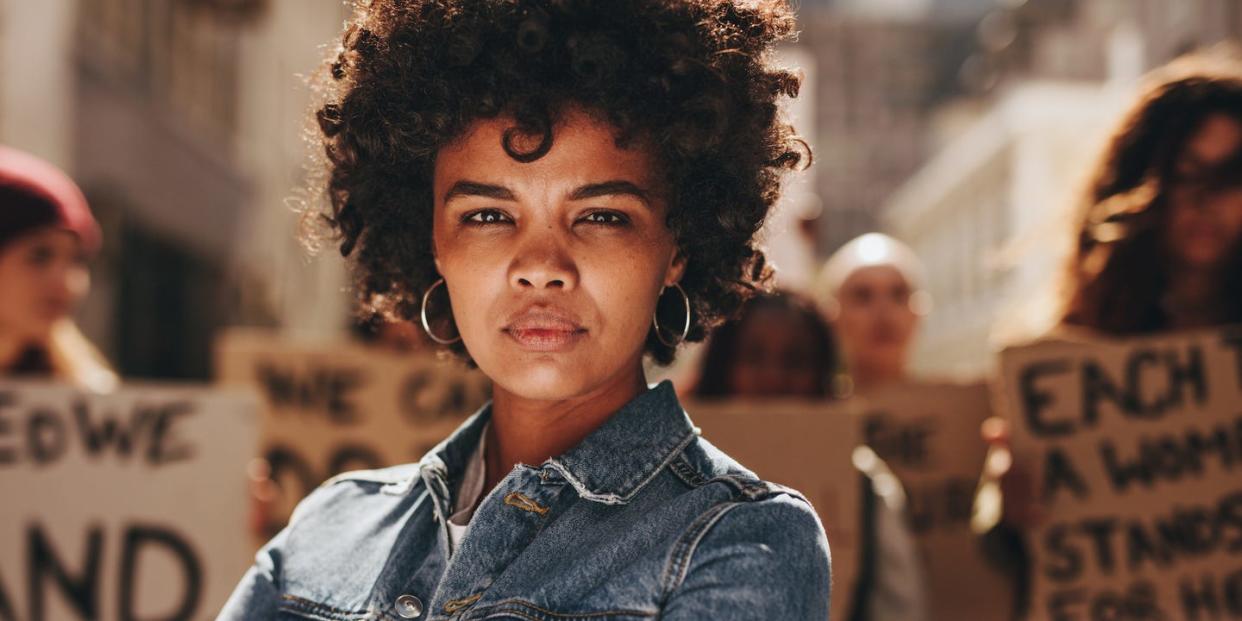
Airbrushing and having a size zero body were the perfection goals of the early 00s; a set of standards that most of us couldn't hope to ever get close to.
But while we've railed against unachievable beauty ideals, it might also be true that we've replaced them with a different kind of unattainable goal as we head towards 2020. Is the pressure to be 100% woke the new impossible perfect?
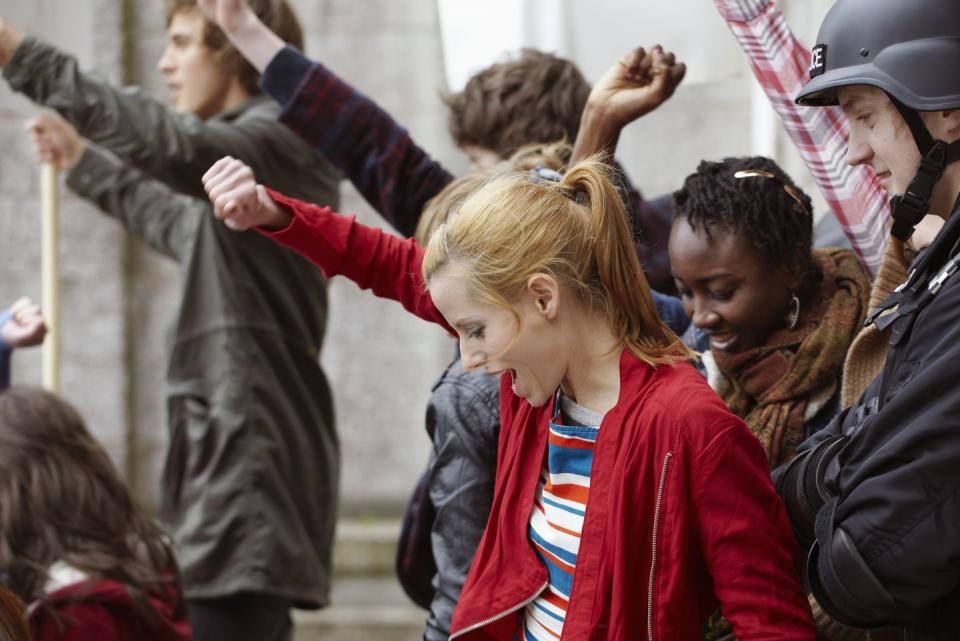
As a teen in the 90s, I felt huge pressure to be a certain shape or size. It makes me sick now when I look back, thinking about how much I squashed myself into a tiny ball as an attempt to ‘fit in’.
It was the era of that Kate Moss quote: 'nothing tastes as good as skinny feels!'
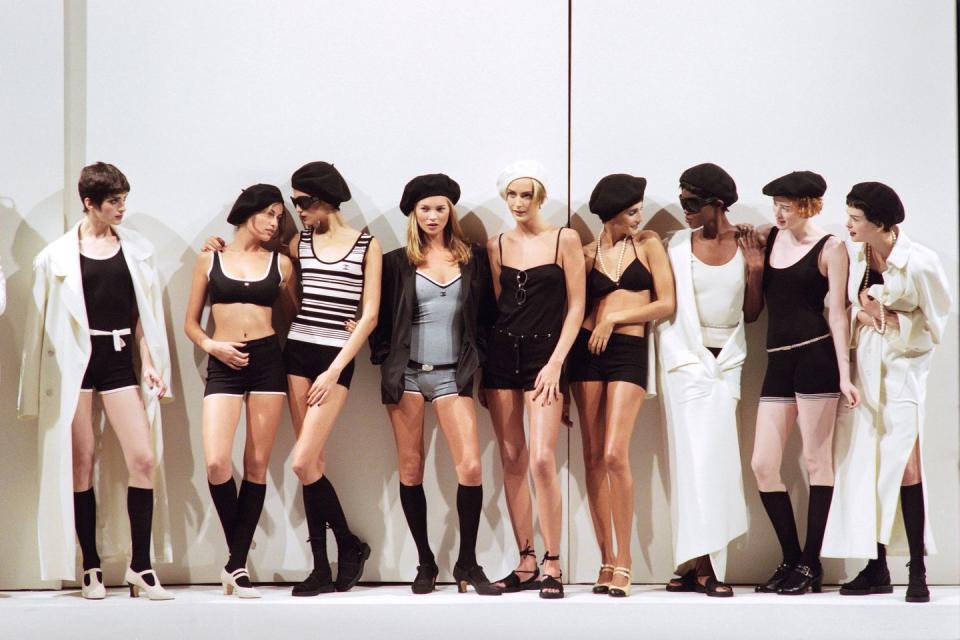
I even wrote a book about how I learned how to photoshop my own bikini body on my parent’s computer, aged 12.
If I was a teen now, I would definitely have downloaded the modern day equivalent of the FaceTune app; but I would also have a new added social pressure: I would be judging myself harshly against my output on how much of an activist I was and what good I was bringing to the world, what news outlets I was aligning myself with, and what strong opinions I held. (Embarrassingly, I don’t think I picked up one newspaper during my teens).
If I was a teen now, I wonder if my self-worth barometer would be just as strict, just as harsh, but through a slightly different lens? Perhaps it wouldn’t be my weight on the scales, but how many petitions I’d signed. It’s the way I scold myself now. Am I doing enough? Am I awful?
According to a study in 2017 by Cone Communications, 84.4 percent of Gen Z respondents reported that making a difference in the world is important. Teens really give a shit (and maybe they always have across generations), but teens today are able to showcase how much they care online, and inspire other people to follow suit. The most inspiring people I follow online are younger than me.
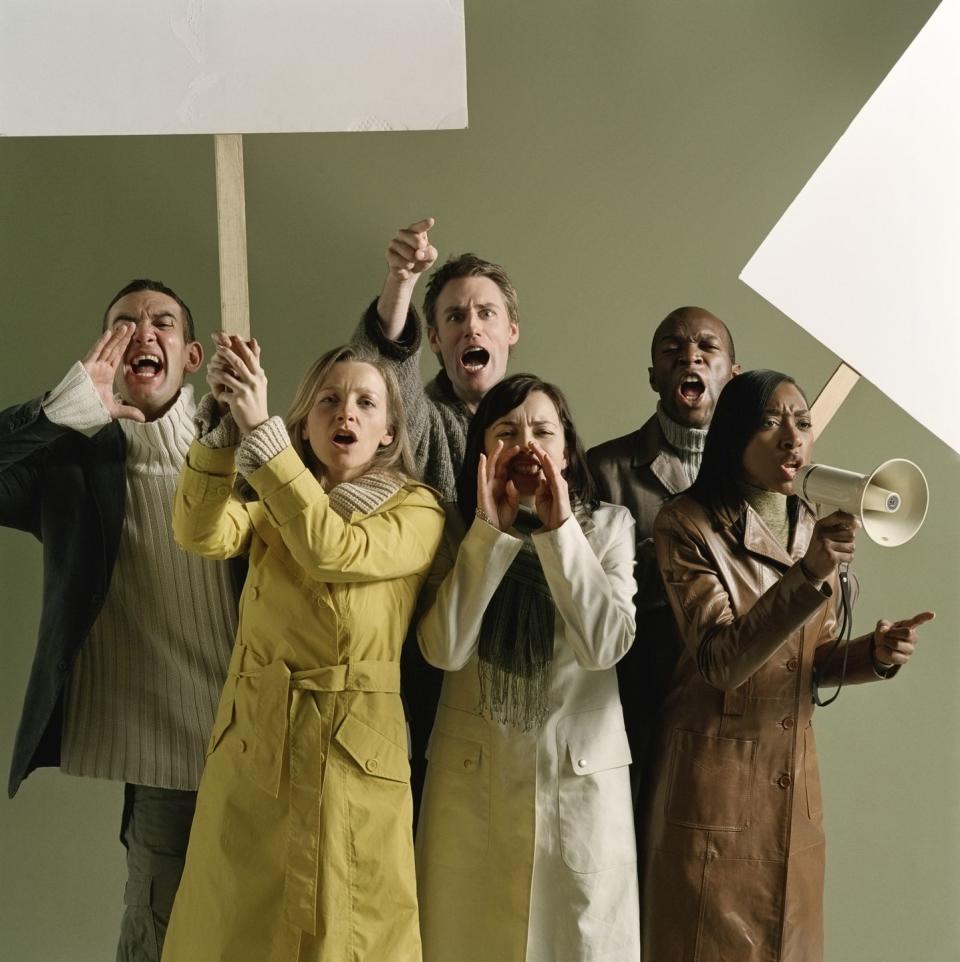
‘Activist’ is no longer a dirty word. And the definition of activism has pleasingly broadened. It can be made up of smaller, quiet moments as well as the big splashy ones. It no longer just means chucking red paint on someone wearing a fur coat (but you know, that’s always a powerful move, too).
Any sort of activism is a necessity in order to keep the planet spinning, but when did it become a competitive social currency?
'What are you doing to save the world?'
'Is what you’re doing good enough?'
'Are you 'woke' enough?'
'Are you enough?'
When did the impetus to be a good person become another tool to make us feel crap about ourselves? There doesn't appear to be room for a learning curve.
Bettering ourselves is only a positive thing, and ‘waking up’ is a privilege, as much as it is crucially important. But the constant hostile backlash to an accidental wrong comment and the feeling of needing to tread on eggshells around serious topics, may mean we become afraid of asking basic human questions.
Selina Barker, founder of Project Love, a life design company says: 'We have to be willing to mess up and reveal our faulty programming if we really want to bring about positive change in the world.'
A post shared by PROJECT LOVE (@loveprojectlove) on Nov 20, 2018 at 10:13am PST
As I grow older (I’m very excited to turn 30 next year), I realise my biggest fear is no longer being bullied for my looks or life choices anymore like it used to be, it’s the fear of being called out publicly for being ‘tone deaf’ or someone digging up an old comment I made before I'd educated myself enough to know better.
A friend of mine, 20-year-old activist Ellen Jones (who recently won an EMA Generation Change Award) is constantly teaching me new things. She’s told me when a caption on Instagram that I wrote was accidentally exclusionary, and she will slide into my DMs to tell me other things too.
But most of the time, far from people offering helpful advice for me to learn from, I am publicly called out by strangers and made to feel like Katie Hopkins when it’s mostly a small, innocent mistake made by someone with generally good intentions.
As you get older, you become more aware of the dangers of being 'out of the loop.' I worry that if I don’t refresh Twitter for a few weeks or read all the new books, am I going to be left behind or unwoke.
I suppose we will all one day turn into our grandmas, who say things with no malice, but potentially an element of harm. Reading absolutely everything on the Internet can become a full-time job though. I don’t know how sustainable that is.
Trans activist Munroe Bergdorf inspires me daily on this topic. She once said on Twitter: 'Nobody is born "woke". You "wake up." Show others the courtesy of forgiveness, just like others forgave you when you started to become socially conscious. We have ALL at one time or another been problematic and none of us are done growing.'
A post shared by MUNROE 🌹🌹 (@munroebergdorf) on Sep 14, 2018 at 1:24pm PDT
Communications director Bella Longman says that this current climate 'shrinks the pool of people willing to put their heads above the parapet.'
#SaggyBoobsMatter activist Chidera Eggerue a.k.a. The Slumflower once said to me: ‘we are all a problematic fave.'
A 'problematic fave' is someone (a celebrity, friend, public figure) who occasionally messes up, says the ‘wrong’ thing and lets you down in some way. It’s time we realised that we are all imperfect. We are all fallible, all learning, all capable of messing up. We are all one tweet away from being cancelled.
Is being a perfect activist the new Keeping Up with the Joneses? It seems to be a palpable and real fear. Blogger Jade Ingham-Mulliner says: 'I actually feel more pressure from this than I ever did when the emphasis was on looking physically perfect.'
The peer pressure in this area can, of course, be useful. Use less plastic. Check your privilege. Give money and time to multiple charities and tweet about it. Go to every protest and march. Say the right things to women. But where’s the line between performative wokeness and genuine personal growth? Or does it not matter?
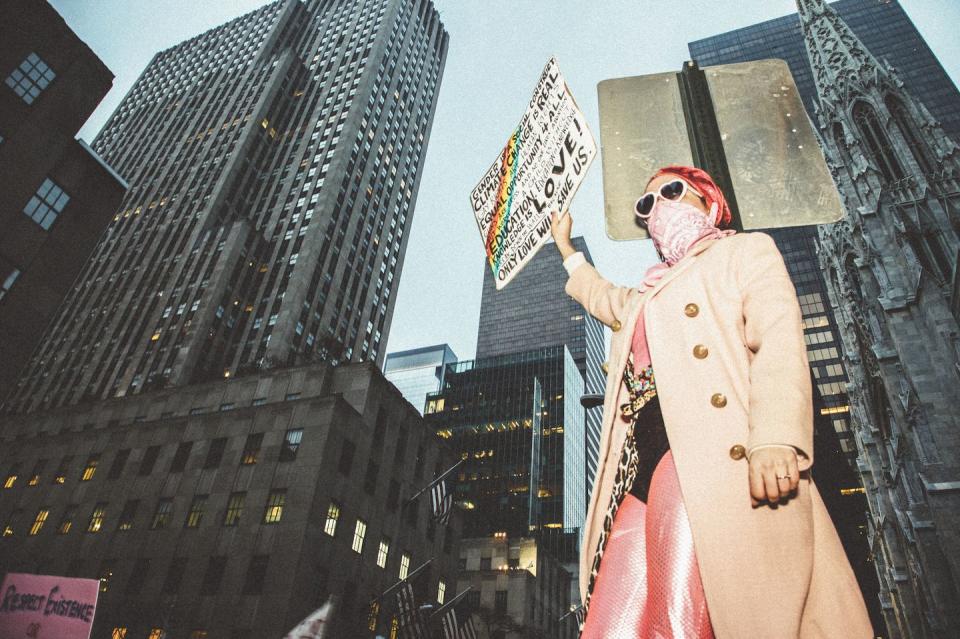
I think the main culprit in our quest of perfection in this area is that we are forgetting how to compassionate (to others and to ourselves), especially on the Internet. You know when someone stands on the left-hand-side on an escalator in London? People get irate! How dare this person just stand there, when I want to walk. Don’t they know the rules? But the person rarely does it because they are trying to be malicious or ruin your day. They simply didn’t realise. Maybe they’ve not been to London before. They just need to be tapped on the shoulder, and politely told, and then they will know.
If activists like Munroe (who deals with a barrage of prejudice and abuse daily) can be this forgiving, then the rest of us should learn from that. Munroe expounds the importance of picking our battles and being a good teacher, rather than a disciplinarian. And in being so, people will wake up and listen.
It would be a real shame if the pressure to be a perfect activist were to prevent people from becoming activists at all. At the end of the day, we only have one lifetime to try and make change, and if we continue to go this 'perfectionist' route then we'll be shooting ourselves in the foot. We don’t want to reach a point where good people who are trying to push change will eventually not bother anymore, for fear of getting it wrong.
My new year’s resolution for 2019? To continue to be an imperfect activist. To have more conversations, less cancellations, and keep learning and failing, on repeat.
Emma Gannon is a Sunday Times Bestselling author, podcaster, broadcaster and regular ELLE contributor, based in London.
('You Might Also Like',)

